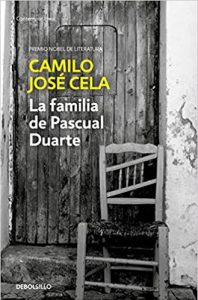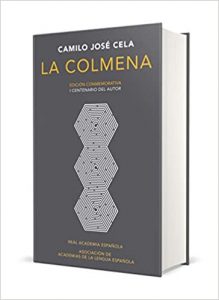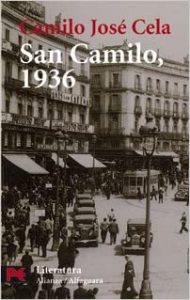The Galician stamp is something that Camilo José Cela maintained throughout his life. A singular character that could lead him from the loquacious to the utmost secrecy, surprising in the meantime with some outburst adorned with select blocks of traditional prose aroma, that prose on occasions eschatological that he frequently reflected in his novels.
Controversial politically and at times even human, Cela was a character of poles, admired and repudiated in equal parts, at least in Spain.
But strictly literary, it usually happens that the genius ends up compensating, or at least softening, any hint of angry personality. And Camilo José Cela had that genius, the gift to recreate unforgettable scenes of vivid, contradictory characters, faced with the mundane but also with the existential, flashes of the hard life of a Spain condemned to conflict, survival at any price and exposure of filth. of the human being.
Once landed in the quagmire of living, Cela knows how to recover values such as love or integrity, self-improvement and even tenderness for the cause. And even when, among the fatalism of being born among the cradles of poverty, you think of the little grace of growing up as one more disinherited, the acidic or limpid humor of both ends up making you see that life shines more when it stands out in the contrast of darkness.
3 recommended novels by Camilo José Cela
Pascual Duarte's family
Sometimes I consider the fact that perhaps the bitterness of not being able to reach the echoes of this first and great novel could endow Cela's character with that acidity. Because for me this is his great work, a novel of youth that hardly reached its flights on any other subsequent occasion.
Summary: Grim etching of rural Spain, Pascual Duarte's family has gained strength and drama over the years and its protagonist, who has not lost his original charm, is already an archetype of universal scope.
Initially published in 1942, Pascual Duarte's Family marks a decisive milestone in Spanish literature and is, after Don Quixote, the Spanish book most translated into other languages.
Pascual Duarte, Extremadura peasant son of an alcoholic, tells us about his life while awaiting his own execution in the cell of those sentenced to death.
Victim of an inexorable fatality, Pascual Duarte is a primitive and elemental being dominated by violence, the only response he knows to betrayal and deception. But that sinister appearance is nothing more than the mask that hides his inability to fight with the evil of others and the helpless helplessness that he harbors in the depths of his soul.
La Colmena
Another of Cela's most recognized great novels is this. Madrid once again becomes that grotesque Valle-Inclán. The melancholy of living with the wisdom that there was not a better past for those characters sunk in regret of what never was and what never will be.
Characters of all kinds and varied relationships to enrich that pessimistic atmosphere but absolutely enriched in the literary and human.
Summary: La colmena, surely the most valuable work of Camilo José Cela, is a faithful testimony of daily life in the streets, cafes and bedrooms of that Madrid of 1943, but it is also a bitter existential chronicle. An air of routine and doom has invaded people's consciousness.
Everyone believes that things happen just because and that nothing has a remedy. Among the motley crowd, the lonely hum of many confused and adrift beings can be heard. As is usual in his work, Cela presents Spanish life without mercy, with sour irony and atrocious humor. However, every now and then, a sympathetic murmur eases the harsh, aching reality.
Saint Camillus 1936
Of more complex reading, perhaps because it looks at the prolegomena of the Civil War, in which Cela participated on the national side, we know the motivations of diverse characters to support one or the other side. It is about that easy prostitution of the truth, an intangible, unreal truth, adjusted to need or pretense ...
Summary: In the three crucial days of the 1936 military uprising, a narrator-protagonist reflects on the individual and historical existence by dint of monologues against the social background of life in Madrid, and of a people asking for weapons to confront the rebellion.
A gallery of middle-class characters, civil servants, pious women and prostitutes is thus revealed to us who make their living in cafes, garrets and brothels, without suspecting that what is looming is an atrocious three-year civil war.
Saint Camillus constitutes a dazzling narrative experiment, an avant-garde novel that takes a new twist on Beehive.



